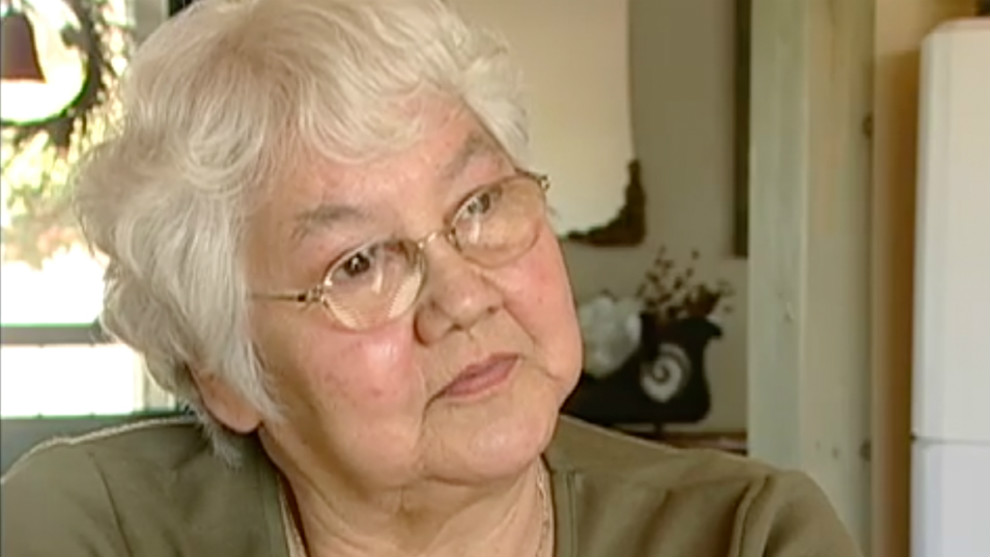MMIW
Nora Bernard
'A loving, very forgiving Mi'kmaq woman'

caption
Nora Bernard championed the rights of residential school survivors.
caption
Nora Bernard championed the rights of residential school survivors.Sitting in her home in Millbrook First Nation, Natalie Gloade looks at a picture of her mother hanging on her wall.
“It’s like she’s looking at me, smiling,” Gloade says. “I know that she’s guiding me.”
Nora Bernard was found dead in her home on Dec. 26, 2007. She was 72 years old. Her grandson — Gloade’s son — was later convicted of manslaughter.
Nora is well known for heading up the largest class-action lawsuit in Canadian history, representing 79,000 Indigenous survivors of residential schools. The lawsuit was settled in 2005, resulting in compensation of $5 billion for these individuals.
John McKiggan, a Halifax lawyer who represented Nora in the case, remembers her as “tremendously loving, tremendously strong, stubborn when she needed to be.”
McKiggan says when he first told her the case wouldn’t be easy to settle and they faced serious obstacles, she replied, “Doesn’t mean we can’t do it.”
“Nora changed my life,” he says.
“She fought the hardest fight there was to fight,” Gloade says. “She was a lady that stood for truth.”
Gloade remembers many things about her mother, including her passion for making fresh bread and preserves.
“Her home was everyone else’s home,” Gloade says.
“She felt like she was everyone’s grandmother,” McKiggan says.
Nora raised Gloade and her five siblings by herself, even though Gloade says their family didn’t have much money. “She always seemed to make something out of nothing,” Gloade says.
Gloade’s last memory of her mother was Christmas Day 2007. The family dinner that year was at Nora’s house, and as Gloade was about to leave, she took a look back at her mother at ease in her kitchen.
She went to hug her mother goodbye.
“She hugged me so deep,” Gloade says. “And still to this day, I can feel that deep hug. And she said, ‘I love you.’ And I said, ‘I love you too, Mom.’”
When asked what Nora would be doing if she was still alive, tears fill Gloade’s eyes. “She’d probably be outside putting up Christmas lights,” she says.
“I miss her. I miss her very much.”
This profile was produced as part of a partnership between The Signal and Kukukwes.com ahead of the national inquiry into missing and murdered Indigenous women and girls.

